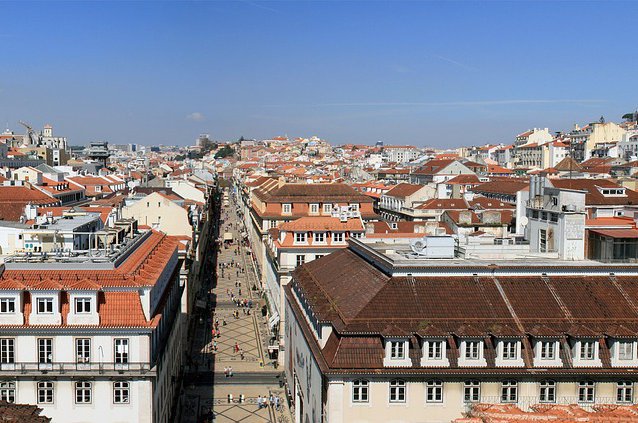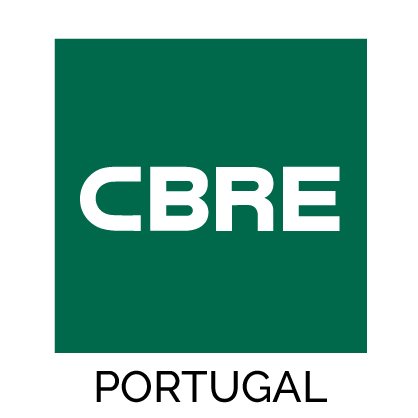Investment on commercial real estate, or on income assets should thus add up to a total of around 3 billion euro in 2021, according to CBRE.
CBRE’s online conference «Real Estate Market Outlook 2021: The Next Normal: Reset to Change» took place this Thursday, the 11th of February, with several market experts sharing their views on the real estate market for this year.
Francisco Horta e Costa, CBRE’s general manager for Portugal, recalled that «at the beginning of 2020, we were predicting surpassing 3 billion euro invested, but we came close, at 2.9 billion euro, 22% less than the previous year, a number which included the second and third largest operations ever within our market».
According to the consultant there was, in 2020, an increase on the yields of all retail segments, except the food segment, where they dropped. The logistic yields also dropped and remained resilient within the Lisbon office market. Foreign investors’ interest on the Portuguese market remained high.
Nuno Nunes, Director of Capital Markets at CBRE, highlighted that «the prospects for 2021 are rather positive», revealing CBRE’s investment pipeline is currently set at 1.956 million euro, which reinforces the 3 billion euro investment prediction for the entire year. We expect 2021 to break a new record».
The main «dark cloud» of uncertainty is related to the Portuguese banks’ financing ability, which is attested by the arrival of several «para-financial» institutions.
It is certain that interest rates should remain low for a longer period of time, increasing capital allocation within the real estate sector, a lesser «victim» of the global uncertainty when compared to other investment sectors.
According to Nuno Nunes, «there is a lack of core product with a conservative risk profile», which provides more assurances that yields «will not grow in the coming times».
«Built to rent» is the «star». Logistics needs new offer.
In terms of the other segments, Nunes believes logistics will continue attracting great interest, but the offer is lacking: «it is the one segment where there are more buyers than sellers».
The office segment, «maintains its attractiveness towards foreign companies which want continue their expansions in Portugal», and «many investors still want to increase their exposure to this type of assets. Many operations will still be concluded during the first quarter».
One of the «star segments» is the build to rent segment, and not only in Portugal, where it is still taking its first «firm and solid» steps. «Investors’ interest is increasingly bigger and more consistent. This rental market exists, it has a significant volume and the ability to generate rents sufficiently attractive to move forward with the project. We hope that in 2021 we can see the first relevant transactions within this segment, as well as asset transactions which fit into it, even if that was not their original intent».
The hotel segment, with all its potential, is waiting for better days. «Portugal will come out on top in the post-pandemic. There is interest, but also awareness of the risk, and that prices will eventually decrease, or that yields will increase», predicted Nuno Nunes.
In terms of the retail segment, shopping centres will be the most penalised when it comes to investment, due to the pandemic. «We will see several owners motivated to sell throughout the year, but we do not know whether there will be investors willing and capable of buying those assets».
Also on the rise, is the interest for alternative assets, which have a «residual correlation with other segments and lower risk», but which in Portugal «are still at a very early stage, where almost everything still needs to be done», despite some developers already having created the first products from scratch. Nevertheless, CBRE expects «some significant transactions» to be carried out this year».
Changes in offices are here to stay
European experts pointed out that «offices will adapt all the lessons we learned from the pandemic. We will build more adapted portfolios, and the geographical distribution of the spaces will change», with modifications to the planning and the design. Within this context, «space utilisation metrics will be very important for the management of its use». Another trend is treating employees as if they were clients, focusing on their experience and incentivising their creativity.
Occupants will also seek increasingly more sustainable and healthy environments, and that will be one trend for the coming years, opening new opportunities for developers.
Housing remains strong
The housing market should remain strong throughout Europe in 2021, and it is beginning to be the segment which attracts more investment, at a time when there is lack of housing on all European markets. The luxury segment is the only one having difficulties in Europe, especially due to the «short stays» offer having been diverted towards domestic markets.
With yields dropping as a consequence of that, more investors accept lower returns in exchange for stability within this segment. The experts’ general prospect is very positive.
Logistic and retail, increasingly more complementary
CBRE’s experts highlighted that retail was one of the segments to be most impacted by the pandemic, and it will continue feeling the pressure this year due to the growth of ecommerce.
But the food and convenience segments are «very strong», along with the retail park format – here too, yields dropped once more.
In the meanwhile, logistics consolidated its position and attracts a lot of capital, at a time when the new pipeline is still moderate, the majority of new projects are «build to suit». Rents should continue increasing in Europe this year, and there will be «many opportunities for investment».
More investment coming to Europe
The trends are similar in Europe. CBRE’s experts for Europe, the United Kingdom, USA and Asia also shared their insights during this conference, showing optimism concerning the economies’ and the markets’ recovery, especially starting with the second quarter.
In Europe, a higher pressure on inflation is expected, despite remaining low, as is an unemployment rate of around 5% by the end of 2021, which would be good news», according to the experts, who expect several surprises for this year.
It is also expected for real estate investment to increase in Europe, especially due to the quicker recovery within Asian countries, which are interested in Europe, such as Singapore and Japan.
It is also expected an increase in the capital flows within the United States, from investors seeking yields and portfolio diversification, focused not only on core assets, but also on data centres, self-storage and other asset subclasses, with higher yields. They look into more secondary cities such as Budapest or Moscow, seeking those same higher yields. In particular during the second semester, capital might reach record levels, according to the experts. But for that, the recovery of air transportation will be decisive.





